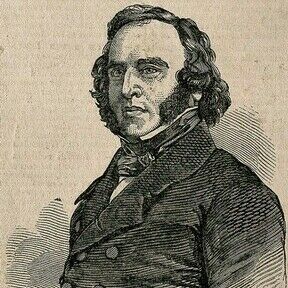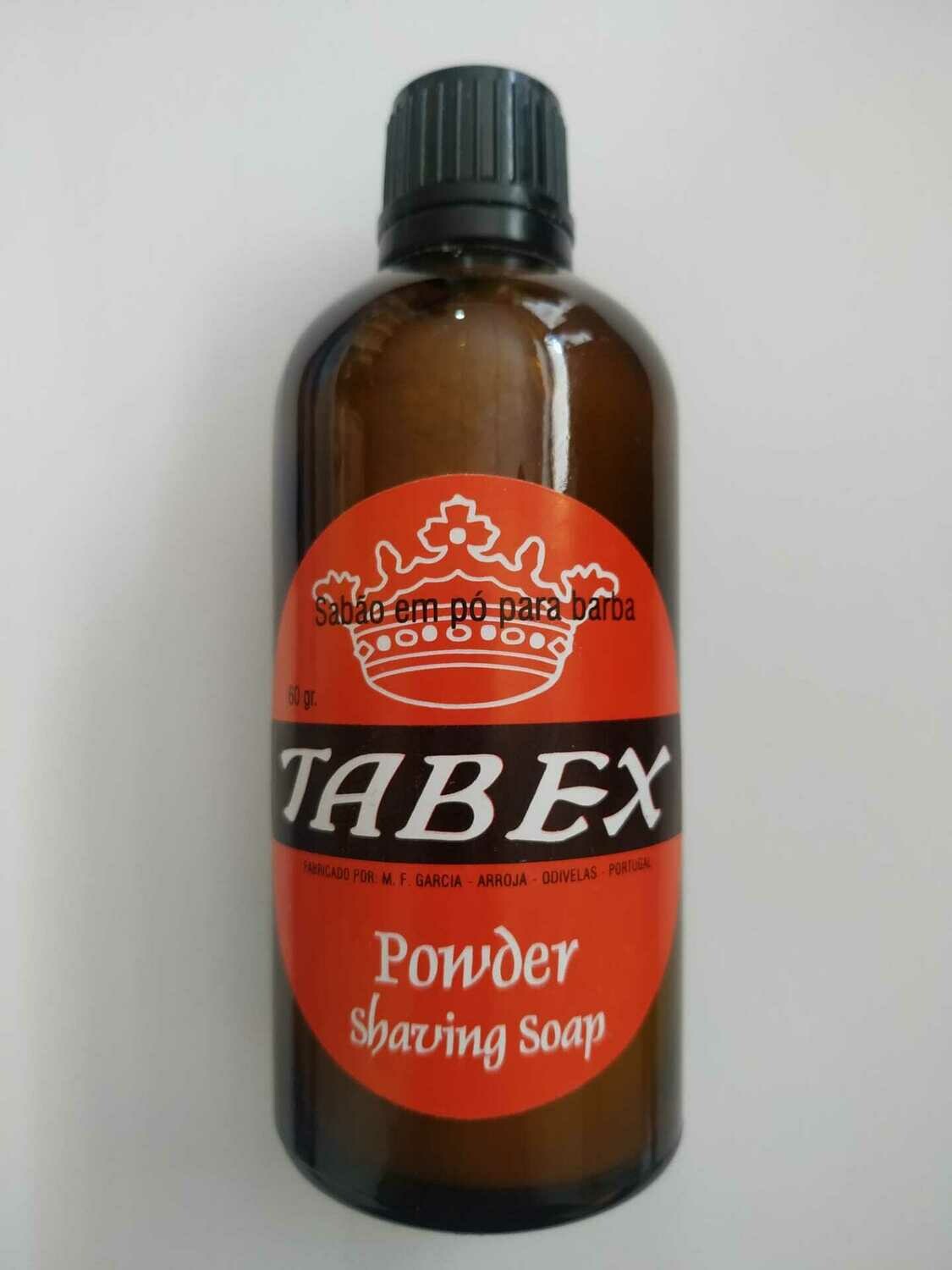

Pereira Shavery
Pereira Shavery the Original
Home of the Activated Charcoal Soap
Tabex Powder Shaving Soap
Shipping Dimensions: 11 x 4.5 cm
60 grs. Or 2.1 Oz. of Soap
The aromatherapy is Orangy in scent
Pereira Shavery carries a time-tested family tradition of cream making of the highest order that started in the 19h century with Dr. Jonathan Pereira, an accomplished chemist very well known throughout London and Europe.
Pereira Shavery brings forth another premium Shaving Soap this time Old Fashioned Powder Shaving Soap under the brand TABEX, made with all natural ingredients. Vegan Friendly and Cruelty Free. No Harsh Chemicals - No Depilatory chemicals -Great for wet shaving, this Soap was created by M.F. Garcia of Lisbon under the brand of TABEX.
Whether you rule the boardroom or wrestle rough seas for a living, Pereira Shaving Soap with or without Activated Charcoal, TABEX POWDER SHAVING SOAP does not contain Activated Charcoal, will keep you looking and feeling your absolute best, all day long.
This Soap have a unique formulation not only gives you a smooth and effortless shave every single time but also keeps your skin at its healthiest by effectively fighting acne and exfoliating your skin. Plus it improves your complexion.
Pereira Shaving Soap guarantees a thick, velvety lather that softens your beard and hydrates your skin, giving you a smooth, frictionless shave, ALWAYS. Pereira Shaving Cream carries a refreshing scent, leaving you not just looking good but smelling great all day long.
Whether you prefer a straight razor blade or a conventional safety razor Pereira Shavery Shaving Soaps will work flawlessly with both, ensuring a close, effortless shave without any damage or tugging on your skin.
Know that your absolute satisfaction is at the core of our endeavor.
You can rest assured that Pereira Shaving Soap is made according to the highest European and American standards.
Our products are not tested on animals, do not contain animal fat and are made with ingredients of the highest caliber with no known side effects.
So reach out for the newest PEREIRA POWDER SHAVING SOAP, for the best shave you will ever have.
Our Team
Pereira Shavery is mostly a family business, with a few collaborators from across the world.
Camilo is the team leader and founder of this Portuguese Company. Camilo holds several patents in many areas. He studied the shaving soap making process for 18 years before re-starting a family tradition dating from the 19th century.
After much research, we created the ideal shaving soap by going back in time to find a recipe created by our ancestor Jonathan Pereira FRS (22 May 1804, London – 20 January 1853). Credited with formulating many of the modern-day recipes for shaving soaps and soap in general, he was considered a pioneer in the industry and was quoted in several popular books and magazines of the time, including The Chemist and Druggist, a monthly trade circular, and The Harper’s Universal Recipe Book of 1869.
We took that age-old recipe and modernized it without losing the science behind it and its original essence. After some research and experimentation, we were able to release our first soap which became an immediate success.
Camilo decided to incorporate activated charcoal in our shaving soaps so that they have detoxifying, cleansing, exfoliating, and clarifying properties that leave your skin feeling soft and supple, without the dryness of regular shaving soaps. Activated charcoal also minimizes acne by exfoliating and drawing out dirt and oil which can clog pores and cause breakouts.
The rest is almost history, we are considered to be on par with, if not better than, many of the leaders of the shaving industry.
To date, Pereira Shavery has developed a range of around over 30 products that are sold globally. We we are the pioneer in creating the Activated Charcoal Shaving Soap and our soap is considered by many experts to be one of the world best shaving soap.
Our Story
Do you know where the oldest soap recipe in the world comes from? The soap, containing oil and ash, can be credited to the Sumerians. And for over 5000 years now, the basics of soap making and manufacturing have remained the same; a process in which oils and fats are boiled with alkalis (sodium or potassium hydroxides) to create a soap base.
Ok! But What about Shaving Soaps?
Shaving soaps are comparatively newer, having been first manufactured in the14th century. The popularity of these soaps soared right until the First World War, when suddenly shaving creams became a more use doption. Shaving soaps, though, have retained their image as a luxurious, indulgent experience and receive favor from shavers who appreciate the traditional wet shaving experience A good-quality shaving soap has high levels of vegetable or tallow fats and glycerin. Acting as a humectant, glycerin (which is derived from vegetable oils) locks in water, thereby, hydrating the skin. Glycerinis also an effective emollient, softening the beard and leaving the skin smooth and moisturized. Without fat content, shaving soaps will not provide the lubrication and protection necessary for the skin. It is due to the fat content that the blade glides easily over the surface of the skin without irritating or nicking it.
How do I pick a Shaving Soap?
As described earlier, the best shaving soaps are those which have high levels of fat. Choose soaps that have about 30%-50% fat content. Good-quality shaving soaps are triple-milled, which increases lather profuseness and produces creamy foam, leaving the skin smooth and soft. The problem arises from the fact that most shaving soaps available currently are bath soaps masquerading as shaving soap and, therefore, provide minimal or no protection to the skin leaving it dry and irritated. Is
There a Shaving Soap I can Use?
Introducing the Pereira Shavery Soaps! To solve the problem of an effective shaving soap, we went back in time to find the recipe created by our ancestor Dr. Pereira. Credited with formulating many of the modern-day recipes for shaving soaps, he was considered a pioneer in the industry and was quoted in several popular books and magazines of the time, including The Chemist and Druggist, a monthly trade circular, and The Harper's Universal Recipe Book of 1869. We took that age-old recipe and modernized it without losing the science behind it and its original essence. Our research and experimentation has led us to this moment, the release of our first product. Incorporated with activated charcoal, our shaving soaps have detoxifying, cleansing, exfoliating, and clarifying properties that leave your skin feeling soft and supple, without the dryness of regular shaving soaps. Activated charcoal also minimizes acne by exfoliating and drawing out dirt and oil which can clog pores and cause breakouts.
What Differentiates Pereira Shavery Soaps?
Our packaging is a throwback to the good times of the past. The soaps come in two unique, traditionally old world, soap dishes, a standard ceramic dish and a package that consists of a ceramic soap dish and foaming dish combined in one. The latter preserves your soaps and provides a resting space for your shaving brush. Our aim is to bring back the old-world charm of a proper shave; a moment where nothing interferes with your shave, leaving you refreshed after just a few minutes of our luxurious shaving experience. This is our movement to bring back the experience of a great shave. A few minutes of your time to create everyday moments that will become your respite from the daily hustle of life. We hope that you will enjoy the Pereira Shaving experience.
Our Inspiration

Jonathan Pereira
Jonathan Pereira
Jonathan Pereira FRS (22 May 1804, London – 20 January 1853) was a pharmacologist, author of the Elements of Materia Medica, a standard work. He was examiner on the subjectin the University of London.
Life
Pereira graduated in Apothecary in 1823 after studying at the Aldersgate General Dispensary and St Bartholomew’s Hospital. In 1826 he became lecturer on chemistry at the Royal College of Surgeons and in 1832 he was an established physician in London, being appointed professor of materia medica and lecturer in chemistry at the Aldersgate Medical School. In 1839 he became professor and lecturer at the London Hospital, where he received the position of assistant physician in 1841. Jonathan Pereira delivered the introductory lectures on Materia Medica in 1842 at the Pharmaceutical Society and one year later he was appointed as Professor of Materia Medica by this institution, examining the subject in the University of London.
His subject area was the forerunner of pharmacology and he published a series of research papers on plant drugs. Pereira later resigned in 1852, the result of a dispute between the Council of the Pharmaceutical Society following the illegal publications of his lecture material. After this incident another teacher in material medica was not appointed, instead Robert Bentley, who was professor of botany at the time, was asked to combine the lectures with hisbotany lectures.
Pereira’s Materia Medica
His interest in the area of crude drugs began when he realised that little was known about those imported into Britain. After years of research he acquired an extensive knowledge of the history of origin, morphology and histology of crude drugs where he was later appointed professor of material medica at the London Hospital. His book on Materia Medica was the first great English work on Pharmacology and he was foremost in putting the knowledge and use of drugs on a scientific footing. During one of his first lectures held at the School of Pharmacy he spoke about ‘material medica consisting of three parts: (1) pharmacognosy, pharmacology, pharmacopathia or the history of simple drugs; (2) pharmacy, and (3) pharmacodynamics. It was here that he referred to the study of crude drugs under the name pharmacognosy instead of materia medica in what appeared to be the first time in which it was used, when in fact it wasintroduced by Seydler in 1817. It took many years until the term was officially used as the name of the subject taught to pharmacy students. Students of Pharmacy studying for their major examinations were given the opportunity of examining the drugs further as well as being introduced to the microscope as another method for the examination of drugs in their powdered form such as starch, with the exception of vegetable drugs. Although where notbeing examined on authenticity and quality, Pereira encouraged his students to investigate authenticity and quality of drugs, something that he was carrying out a lot of research on at the time. This was considered an important part of the pharmacists role as Jacob Bell pointed out ‘the reputation of pharmacy depended upon pharmacists having this expertise.
Pereira was named a Fellow of the Royal Society in May 1838. Two years later he received the degree of M.D. “honoris causa” from Erlangen University. In his memory a marble bust was erected in the London Hospital and the Pharmaceutical Society founded the Pereira Medal and a scholarship fund with his name.
More Infor:
http://www.jewishencyclopedia.com/articles/12021-pereira- jonathan
